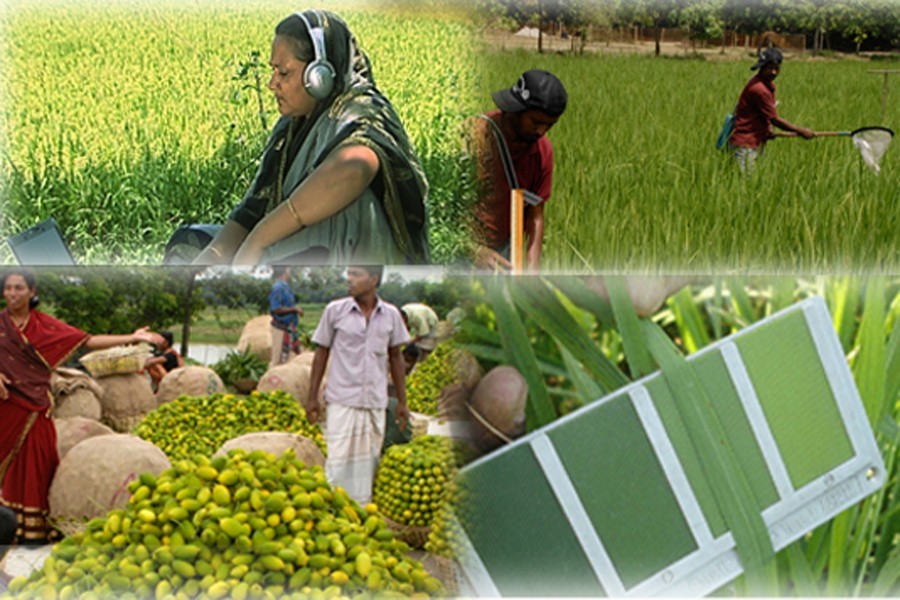Market volatility remains endemically an irritant and at times causes economic haemorrhage not only to consumers and producers but also to this country. Some like to call it a sellers' market. If this is true and tolerable to an extent, the more intriguing type called syndicated business somehow continues to operate in defiance of government-recommended price levels. If the essentials are the imported ones, it is the consumers who are hurt most. But if it is produces like staples, cooking oil, spices or other items of daily uses, traders are always on the lookout to deprive producers of fair prices and cash in as much as they can on deliberate supply disruption at the expense of consumers.
Right now the prices of both rice and cooking oil are going up and traders have shown no inclination to comply with the government order to sell the items at the prices it has fixed. The apprehension is that traders are playing their own familiar game with the objective of pushing prices further on the eve of and during the holy month of Ramzan. Of the demand for 2.2 million tonnes of edible oil, 90 per cent is met by import of the item. So, traders have a better chance of making the most of the huge deficit ahead of the religious festival when the demand for cooking oil goes up.
If this imported item can be used as a pretext for fattening their coffer, what about rice? Paddy production has increased over the years to a level of self-sufficiency with exceptions like the crop loss due to repeated floods and cyclone Amphan last year. Here traders such as millers, hoarders and middlemen have become accustomed to eating the cream but farmers who are feeding the nation have long suffered on account of sluggish prices at the growers' level. For years farmers had to incur losses because the production cost was higher than the market price.
This certainly makes a compelling argument for cheaper cereal price at the consumer level as well. It was not. By the time paddy turns into rice and reaches consumers, the retail prices are unreasonably high with little or no compatibility with the prices at the growers' level. Some of the perishable items even fare worse. Radish, tomato and carrot have to be disposed of not only at a throw-away price but at times used for cattle feed or dumped to rot as they do not fetch even the carrying cost to the market.
What is surprising is that even in this age of digitisation, people in some businesses can compromise on business ethics without being held accountable. So, how to redress the wrong and injustice suffered by farmers who are deprived of their fare share of profit? The issue has come to the fore with reinforced urgency in relation to the country's food security against the backdrop of climate change. Farmers cannot be left perpetually at the mercy of businesspeople and middlemen --- some of whom may add value to produces but others are simply parasites. This country cannot afford agribusiness like the type prevailing in the United States of America.
As the chief guest of a discussion arranged by the Debate for Democracy at the Film Development Corporation (FDC), Tejgaon, eminent economist Debapriya Bhattacharya claimed that it is a matter of time before a commission for agricultural produces is constituted. The commission will work in favour of eliminating business monopoly and middlemen in order to ensure fair price for farmers. The task was daunting once but given the present state of economic development it is quite possible.
In India, farmers' prolonged protest has shown that there is at least a scope for them to raise their voices and make their grievances known. The presence of the Agricultural Produce Market Committee (APMC) is supposed to protect farmers there from exploitation by private creditors and other intermediaries. Farmers in some states are fearing that the recent amendment brought to the APMC Acts 'will deprive them of the Minimum Support Price' and may leave them at the mercy of multinationals and big corporate houses.
At least there is a pro-farmer legislature and complementing frameworks in the shape of APMC in India but here farmers have no organisation to place their demands. So the proposed commission may play a role in this regard if the government empowers it sufficiently and backs up with infrastructure and other material supports.
Clearly, the annual paddy or rice procurement drive has largely failed and irregularities and malpractices in the process cannot be ruled out. Then how to elbow out the intermediaries and cut the influence of millers and hoarders? One way is to build up a fleet of goods wagons, vans and trucks to be operated under supervision of a committee comprising representatives of local government, farmers and local traders. If produces can be transported in time to markets where those enjoy a high demand, price cannot fall drastically and traders cannot make outrageous profit.
The Agriculture Extension Department must be involved with the entire process in order to decide the acreage of land for cultivation of crops, provide quality seeds and other such support. This is meant to strike a balance between demand and supply of locally produced crops. The next step is to go for crop insurance. Farmers surely deserve as much for protection of their economic interests and food security of the nation.


